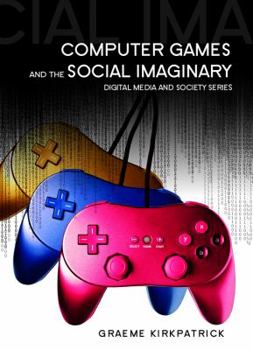Computer Games and the Social Imaginary
(Part of the Digital Media and Society Series Series)
Select Format
Select Condition 
Book Overview
In this compelling book, Graeme Kirkpatrick argues that computergames have fundamentally altered the relation of self and societyin the digital age.
Tracing the origins of gaming to the revival of play in the1960s counter culture, Computer Games and the SocialImaginary describes how the energies of that movementtransformed computer technology from something ugly andmachine-like into a world of colour and 'fun'. In theprocess, play with computers became computer gaming - a newcultural practice with its own values.
From the late 1980s gaming became a resource for people to drawupon as they faced the challenges of life in a new, globalizingdigital economy. Gamer identity furnishes a revivified capitalismwith compliant and 'streamlined' workers, but at timesgaming culture also challenges the corporations that control gameproduction.
Analysing topics such as the links between technology and power, the formation of gaming culture and the subjective impact of playwith computer games, this insightful text will be of great interestto students and scholars of digital media, games studies and theinformation society.





